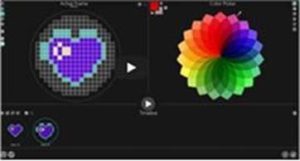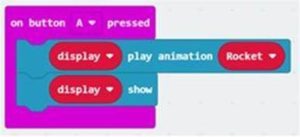In 2020, computer science education is more important than ever before. The COVID-19 pandemic has demonstrated the value of ensuring every European can make the most of technology – and to do this, it is essential to increase access to digital literacy and advanced computing skills. EU Code Week, which takes place from 10-25 October, is the ideal time to highlight the value of computer science education.
Just last month, the European Commission shared its vision for “high quality, inclusive and accessible digital education”, with the release of the Digital Education Action Plan. One area for action identified by the Commission was the need to increase basic digital skills and competences from an early age, while also fostering the development of advanced digital skills and encouraging more girls and young women to pursue digital studies and careers. This focus chimes with our own research, which has found that starting early is vital to ensuring that children, and especially girls, get excited about science, technology, engineering and maths (STEM) and remain so throughout their formative years.
A game-based approach is often perfect for capturing the attention of younger students, which is why we have developed a new set of coding lessons, “Coding FUNdamentals”, now available through Minecraft: Education. Students can also gain hands-on experience with Microsoft MakeCode, which works seamlessly with physical tools like Micro:bit so students can build exciting digital solutions to real-world challenges. Finally, for the more creatively minded kids out there, Microsoft Research’s new project, Expressive Pixels, is an authoring app combined with open-source firmware, peripherals, documentation, and APIs that allows users and makers to create animations and then display them on a range of colorful LED display devices.

Technology has the power to help tackle some of humanity’s most pressing challenges – and unlocking this potential is something we’re keen to enable for all young people. The Imagine Cup Junior competition gives teenagers the opportunity to explore how AI technologies can be used to address social, cultural and environmental issues, with students working together to develop cutting-edge, creative solutions to concrete problems.
And as students approach the end of their education and are considering how to transition into the modern workplace, it’s vital to make sure they have the skills employers are looking for. Between 2005 and 2016, 40% of new jobs were in digitally-intensive sectors and there are currently hundreds of thousands of unfilled vacancies for ICT professionals in Europe. Tools like Microsoft Learn for Students support the transition to professional level computing tools by familiarizing students with tools like Python, Azure Machine Learning Studio and more.
 At Microsoft, we’re also working to bridge the gap between education and employment by supporting the European Skills Agenda and promoting the importance of lifelong learning. While getting started early is great when possible, we believe everyone, regardless of age or experience, should have the opportunity to upskill on an ongoing basis. That’s why in June 2020, together with LinkedIn and GitHub, we launched a global initiative to help 25 million people, including jobseekers, worldwide acquire the digital skills needed in a COVID-19 economy – and already we’ve helped 10 million learners around the globe, including more than 1.5 million in the EU.
At Microsoft, we’re also working to bridge the gap between education and employment by supporting the European Skills Agenda and promoting the importance of lifelong learning. While getting started early is great when possible, we believe everyone, regardless of age or experience, should have the opportunity to upskill on an ongoing basis. That’s why in June 2020, together with LinkedIn and GitHub, we launched a global initiative to help 25 million people, including jobseekers, worldwide acquire the digital skills needed in a COVID-19 economy – and already we’ve helped 10 million learners around the globe, including more than 1.5 million in the EU.
The new European Commission is keen to make this Europe’s “Digital Decade”. For this to happen, Europe needs to upskill its existing workforce, while also ensuring that the next generation sees computer science as an exciting, creative and worthwhile field to pursue professionally. EU Code Week is all about showing the power and potential of code to shape the world of tomorrow – and the work to get there starts today.


